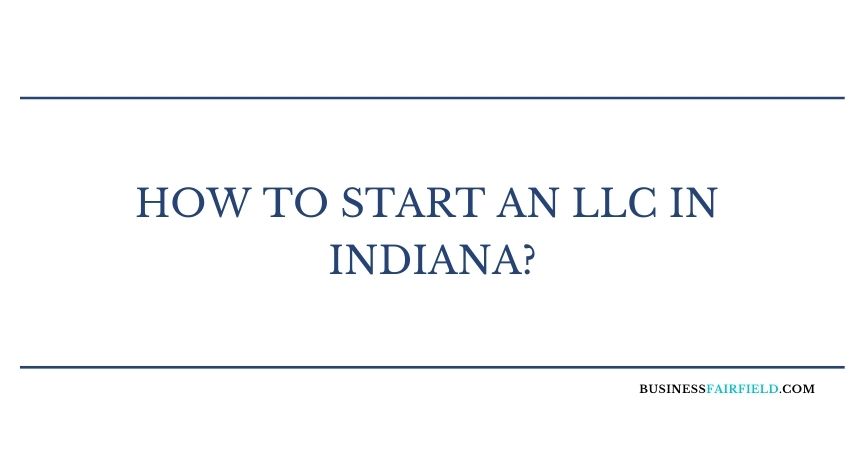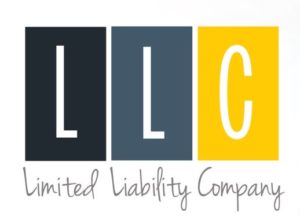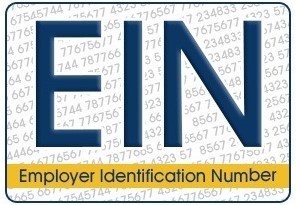On the off chance that you are hoping to form a Limited Liability Company (LLC) in Indiana, and don’t have the foggiest idea how to do so, you have come to the right place! There are a couple of key points for you to focus on which will cost you greatly in the event that you neglect to do as such.
Things such as an operating agreement, registered agent service, an Employer Identification Number (EIN), and much more will be explained throughout this guide.
In layman terms, you should liaise with the Department of State of Indiana, the State business services division and the Indiana Department of Taxation to lawfully form your Indiana LLC, and have a legitimate business structure already. It is just as simple as that!
This guide will bring you through the various kinds of business structures and furthermore the whole cycle of forming an LLC bit by bit. So let’s begin!
Sole proprietorship
Sole proprietorships are the simplest type of all the business structures. On most occasions, entrepreneurs with a small business in Indiana will utilize this business structure before expanding or growing into other business structures, most commonly LLCs or partnerships.
Sole proprietorships are straightforward as it could be said that they have legal restrictions while retaining the benefits of a full-fledged business. Be that as it may, sole proprietorships also have unlimited personal liability when it comes to the debts and liabilities of the business, and termination of the business occurs upon the death of the sole proprietor.
Partnership
General partnerships are formed after the agreement of each partner involved. The agreement should include a contribution of each partner, the distributions of profits and losses as well as the terms of termination. If a written agreement is not drafted, all partners are presumed to have equal shares in the losses and profits of the business.
A general partnership has unlimited personal liabilities for the businesses debts and liabilities. A limited partnership is formed when there exist one or more limited partners in combination with one or more general partners. Limited partners have limited personal liability.
On the other hand, there are alternative forms of a general partnership known as the LLP and the LLLP which involves filing with the Bureau of Corporations and Charitable Organizations of the Indiana Secretary of State Business Division.
LLP and LLLP statuses impart general partners with limitations and additional protection for personal liabilities from the businesses debts and liabilities.
Corporation
Corporations are the most complex business structure. It is highly advised that the paperwork for incorporation be viewed by a legal advisor. This is to ensure that all legal consequences are considered before starting a business.
Corporations limit the liability of the owners based on the shares held by individual owners. Death or transfer of shares does not affect the corporation, unlike other business structures. Corporations require detailed record-keeping and regulation as they have double taxation for profits. Dividends earned are tax on an individual level.
There exist two types of corporations in Indiana, namely C corporations and S corporations. Both of which have different rules, with C corporations allowing federal income tax rules for determining income and S corporations following Indiana income tax rules for determining income.
What is an LLC?
An LLC is a non-business partnership with at least one person limitedly answerable for the business’ legally binding responsibilities and different types of liabilities. The structure of an LLC shows more similarity towards a corporation than to any other types of partnerships available.
An LLC can be formed with at least one owner, which allows them to operate as an LLC instead of a sole proprietor which limits the owner’s personal liability.
An LLC as compared to a corporation is very much different. An LLC will have managers who oversee all operations instead of having a board of directors and officers.
Furthermore, an LLC also has members instead of shareholders. These members are investors who can be considered as the owners of the company. These people can be individuals from various corporate bodies. These are the people who own a part of the company through the subscription of shares.
Limited liability companies are different in general. People who start an LLC are owners of a sole proprietorship who wishes to grow and expand their business. Hence they convert their business model from sole proprietorship to a limited liability company.
There are many benefits for the owner of a sole proprietorship who wishes to expand their business to convert it to an LLC.
How To Get An LLC In Indiana?
Step 1: Selecting a viable name
The first step to forming the LLC in Indiana is to select a viable name for the LLC itself.
The name selected for your LLC in Indiana must be unique and distinguishable from existing registered businesses in Indiana. Be sure to choose a catchy name that complies with Indiana’s Secretary of State Business Department naming requirements. Having a catchy name for your LLC in Indiana will also render it easier to remember and searchable by your future clients.
Selected LLC names may be checked for availability at the Indiana Secretary of State Department business name database. In compliance with Indiana law, the selected LLC name must contain the phrase or words “Limited Liability Company,” “Limited,” or “Company”. There are some acceptable abbreviations of the phrases or words (Ltd., Co. or L.L.C).
In contrast, the selected LLC name must not contain words or phrases that would confuse said LLC name with the name of a government agency (Secretary of State Department, State Business Services Division, Treasury of State, FBI, Department of State etc.).
There are also restricted words such as “Bank” and “Attorney” which will require additional paperwork to be done if you are looking to have such words.
If the company name is available and a future LLC wishes to reserve a name after checking the availability of said name from the Indiana Business Express search database, they may reserve the desired name with the Indiana Secretary of State. Reserving a name can be done by filling a Name Reservation Form with the Indiana Department of State.
It is also advised to check if the selected name for your LLC in Indiana has an available web URL in the event the LLC owner wishes to make a business website. This enables the LLC members to reserve the domain name to prevent it from being used by other entities.
Step 2: Choose a Resident Agent of your Choice in Indiana
It is mandatory to nominate an Indiana resident agent for your LLC in Indiana. In other states, a resident agent is known as a registered agent. Registered or resident agents are agents who act as an individual or business entity that handles important documents such as tax forms, lawsuits and government correspondence letters on the behalf of your business.
A resident agent is your middleman contact between your LLC and the state.
A resident agent must be a resident above the age of 18 in the state of Indiana. The resident agent could also be a corporation that provides resident or registered agent services. Registered agent services are corporations that provide a registered agent for your LLC. They are also authorized to transact business in the state of Indiana.
There are corporations such as ZenBusiness which provide these services at a very affordable price. We will get to more about ZenBusiness at the end of the article.
Step 3: Filing an Indiana LLC Articles of Organization
In order to register your LLC, the next would be to file the Articles of Organization with the Indiana Secretary of State Business Services Division. This can be done via an application online or by postal services. The Articles of Organization is often referred to as the Certificate of Formation or Organization.
The articles of organization are important documents that must be handed up to the Indiana Secretary of State in order to legitimise the formation of the LLC.
The articles of the organization must include the name of the Indiana LLC, appointed resident agent, the names of all members, an effective date for which the Indiana LLC is formed and the list of services which your LLC will be providing.
It is worth mentioning that the Indiana secretary of state has a filing fee for the articles of organization. The articles of organization filed to the Indiana secretary of state must be accompanied with a docketing statement as well as the filing fee via online or by mail.
The accompanying docking statement should include the name of the LLC, the name of the individual responsible for initial tax reports, a description of the Indiana LLC’s business activity, the Federal Tax Identification Number (FEIN) / EIN and the LLC’s Fiscal Year End (FYE). An EIN is mandatory if you are planning to hire employees and open a business bank account.
Both the articles of organization and docketing statement can be sent to the Indiana secretary of state via online or by mail. The articles of organization and docketing statement is an important document to legitimise your LLC formation process. Filing the Articles of Organization document will take you from at least 4-8 days online and 4-6 weeks by mail.
Step 4: Write up an Indiana LLC Operating Agreement
Although it is not a requirement, it is highly advisable and a good practice that the Indiana LLC members draft an LLC operating agreement.
The agreement is solely an internal and legal document, meaning it does not require filing with the Indiana secretary of state or the Indiana department of state. The operating agreement of an Indiana LLC acts as a document to establish the power, duties, liabilities and obligations of each member of the LLC.
The operating agreement document serves as an outline for the ownership and operating measures of an LLC. Members of an LLC in Indiana do have the option of not drafting an operating agreement.
LLCs which do not draft an operating agreement run the risk of being insufficiently equipped to reach any settlements regarding misunderstandings over management and finances. A comprehensive and legitimate operating agreement ensures that business owners are all on the same side while also reducing the risk of overall future conflict.
The LLC would be required to follow Indiana’s default operating agreement if an operating agreement is not drafted among members. Hence it is strongly advised that the LLC organizers draft an operating agreement to ensure smooth operations.
Step 5: Getting an EIN for your Indiana LLC
An EIN is short for Employer Identification Number. An EIN is a nine-digit number that is assigned to LLC owners to help identify the different types of businesses for tax purposes. An EIN is used when you are opening a business bank account, filing and managing federal and state taxes. You will also need an EIN when hiring employees, as stated above.
If the owner of a sole proprietorship intends on expanding and growing their business by forming an LLC, they are required to obtain an entirely new and different EIN in compliance with the IRS requirements.
Indiana LLC owners can receive their EIN for free from the IRS. In order to obtain an EIN, this can be done via mail or online by the IRS. It is mandatory for all LLCs with employees to acquire an EIN. Indiana LLCs with more than one owner is required to have an EIN as well.
Step 6: Maintaining the Indiana LLC
Maintaining the formed LLC in Indiana may be a tough job for most people. This is why in this guide we will also be covering the steps that are needed to maintain their Indiana LLC.
It is highly recommended that members of an LLC maintain good standing and relationship with the state of Indiana for the entire duration of their business days.
Members of an LLC have the ability to apply for a certificate of subsistence when the LLC is still in existence as a matter of record in the Office of the Department of the Commonwealth. Information regarding steps on how to obtain the certificate of subsistence can be obtained from the Department of State’s website.
The members of the Indiana LLC are also advised to keep personal and business account finances separate to avoid confusion during the sorting of assets. By separating your accounts, you are ensuring that your employees and the owners will not be personally liable for any business debts and liabilities.
Furthermore, in order to maintain your Indiana LLC after you have successfully formed the LLC itself, you must separate your personal and business assets. Separating your personal and business assets will ensure that your car and home is not at risk of being repossessed by the bank if your Indiana LLC is being sued.
If your personal bank account and business bank account is mixed, then you are at risk of losing all your assets, and this is classified as piercing the corporate veil in business law.
Steps to maintaining the corporate veil After Forming LLC in Indiana
Which leads us to our next section of the guide, how does one maintain the corporate veil? We will be covering the steps which are mandatory to keep your Indiana LLC out of trouble.
The corporate veil is the general rule of thumb in business law which states that any business entity can protect its owners from incurring any sort of personal liability. This means that only the business assets will be repossessed by the bank in order to pay off certain debts in the event that your Indiana LLC is sued.
All the debts incurred from the owner’s LLC will not be transferred over to him personally. The corporate veil acts as a shield for small business owners who just formed their LLC which explains the importance of this protection.
Owners of an Indiana LLC or business entrepreneurs who are looking to start an LLC is not alone sufficient enough to ensure that you have the protection you need for your business. Creditors who are looking to sue may be able to pierce the corporate veil on the grounds under the court of law that the business has been found in one of the following scenarios:
- The company simply does not possess enough funds
- The company and the owners do not possess an entirely separate identity
- The company was found to have been involved in fraudulent activities
Therefore, it is important that the LLC has adequate start-up capital to cover all current and future liabilities so that creditors will not be allowed to sue you personally. Creditors who are looking to sue will always look for loopholes as such in order to retrieve their money.
Capital aside, during your business days, it is important that every single transaction is documented for future references. It is best to avoid signing agreements or documents without fully reading and understanding documents and agreements to avoid being conned.
By signing agreements that may or may not be harmful to the company, you are putting your Indiana LLC at risk of unwanted legal issues.
Furthermore, the dealings of the company should be carried out solely under the name of the company. Business owners are advised to refrain from using their personal name or identity to conduct business transactions. Business owners who have done so are vulnerable to personal liabilities in the event that a lawsuit is brought to them.
Authorized members of the Indiana LLC must vary during the signing of any sort of document, and must further clarify that their personal assets are a separate entity from your business.
Last but not least, you should always stay away from fraudulent activities throughout your business days to ensure that your company is not at risk of being sued.
Companies who have been found to have been involved in fraudulent activities will find themselves more vulnerable to lawsuits, or worse, revocation of their license to run their business.
Alternative: Using LLC Formation Services in Indiana
If you are still confused over the whole process of forming the LLC, you have the option to hire someone in the state of Indiana to form an LLC for you. If you are reluctant to go through the hassle of doing further research and filing up legal documents, LLC formation services are definitely a go to for you.
There is an abundant number of options when it comes to choosing which corporation to go for in order to fulfil your LLC formation needs. Looking at the companies that are able to help with forming an LLC in Indiana would not limit our choices but it does give us some options to work with.
Among the most popular company forming services that help with LLC formation would include but is not limited to ZenBusiness, Incfile, LegalZoom and etc. These corporations will provide you with a registered agent service that will handle all of your formation needs.
Why are LLC formation services beneficial?
Among the benefits of using a company formation service, time conservation is one of the most important ones of all.
When forming the LLC entirely by yourself, it may seem like a hectic job as we would have to search for forms and legal documents to fill up. Even after doing extensive research, it is likely that we would miss out a form or two. Missing one of these documents would cost us greatly.
However, this can be easily prevented by using an LLC formation service, alongside their registered agent services as well.
The registered agent will often guide owners on how to go about settling their first annual requirements in order to help the owner to keep their business in Indiana up and running. Owners who depend on these registered agent services can rest easy throughout their business days and focus entirely on making their business successful in every way possible.
LLC formation and registered agent services by ZenBusiness especially also includes the registered agent service for the maintenance of your LLC for free.
Business owners can lay their worries to rest as they are not risking any sort of possibility of receiving a legal penalty for things like a late submission for a legal document. The registered agent will receive these legal documents on behalf of the business owners, while also reminding them of important submission dates.
The registered agent will also teach business owners in order to maintain their business for future years.
There are no downsides to hiring a corporation for their LLC formation services. It is safe to say that opting to use an LLC formation and registered agent service is the fastest and safest way to form an LLC in Indiana. Choosing to use an LLC formation service also leaves more time and manpower to focus on the business instead of the logistics side of things when forming the LLC itself.
We highly recommend using ZenBusiness as your corporation of choice when looking for an LLC formation service provider. They have numerous benefits which will be displayed on their main website here.
Conclusion
Hopefully, this article has helped you in your pursuit of forming an LLC in Indiana. Though the article has mentioned numerous key points that will help you along your journey to start an LLC or business in Indiana, it is recommended that you contact a legal advisor in Indiana on how to proceed with the legal work required.
Contacting a legal advisor in Indiana will ensure that your business in Indiana is compliant with your current Indiana state laws as well as a hasty application process.
Frequently Asked Questions (FAQs)
Can I be my own Registered Agent?
Yes, business owners or any employees within the company can act as a registered agent for your limited liability company.
Is a registered agent service worth it?
Yes, engaging a registered agent is an effective and time-saving method in managing your government filings for your limited liability company. Most often than not, the advantages of hiring registered agent is very apparent and outweigh the annual costs.

Starting a business correctly doesn’t have to be difficult. With over 15 years of experience consulting new businesses and start ups, Matthew is probably the best person to help you set a strong foundation for your business.






